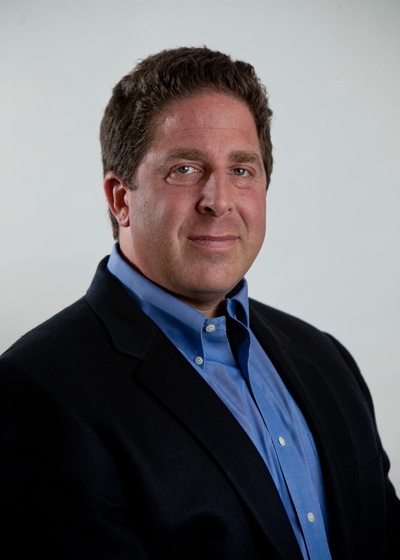
New teachers give a show of hands in response to a question about teaching experience during a Clark County School District orientation session for new teachers at the Venetian Thursday, Aug. 15, 2013. Over 1,700 teachers took part in the orientation.
Wednesday, March 4, 2015 | 2 a.m.
“Students/parents/principals/administrators/lawmakers don’t respect me.”
It’s a common refrain in teachers’ lounges and in the comment sections at the bottom of news articles. Countless new evaluation and accountability regimens have left many in the teaching profession feeling undervalued and under attack from all sides. Morale seems to be at an all-time low.
But Rick Hess, senior fellow with the Public Education Foundation's Leadership Institute of Nevada and education policy director for the American Enterprise Institute, a conservative think tank, says it’s nothing new. In a new book, “The Cage-Busting Teacher,” he writes that teachers have always been under pressure from districts and their communities.
His advice for Las Vegas teachers who find themselves with little administrative support and a lot of pressure to improve student performance? Channel frustration into positive action. Here's how he suggests teachers do that.
What do teachers do wrong when voicing frustrations?
The problem is teachers aren’t very good at making their case. They too often voice their concerns as complaints. They don’t often enough put solutions forward. They’ll explain what the problem is but won’t tell you how to fix it. They haven’t done a good enough job at holding their peers accountable.
I want reformers to create the room to solve problems, but I want the solutions to come from schools and classrooms. Problem is, teachers have to take the expertise they have and use it constructively. They should understand that every one of those policymakers actually cares about kids. They need to understand that this is not about people picking on them.
What are the most common complaints you hear from teachers?
That they’re not respected or that their expertise is not respected.
It’s like anybody who doesn’t feel respected at work. Teachers feel like someone comes up with some dumb way to evaluate kids or some dumb new program, and they feel like either there’s no point in speaking up because no one will listen, or they feel like if they go in and say anything, it’s going to get ignored and show up as a black mark.
Teachers have a point, but here’s what I tell them:
If a student shows up and says to you, “This is a dumb lesson, I don’t like this.” And you say “What’s dumb about it?” And they say “It’s stupid.” And you say “Well, do you have a better idea?” And they say “No, you’re the teacher. Just stop doing stupid stuff.”
On the other hand, if that same kid shows up and says “I don’t like this lesson. It’s not useful.” And you say “Well why not?” And they say “Well this is stuff we already learned last year. There’s a really cool thing they got going on at the museum. Could we maybe write a paper about that instead?”
Now you’re having a conversation. And that’s the kid the teacher is going to take seriously the next time.
But shouldn’t it really be the district’s job to make teachers feel valued in the first place?
I think that’s right. Not just the district level — it certainly comes from Washington D.C. and state capitals. Some of these teacher accountability systems are just flat goofy. The impulse is good but we don’t know how to do it well. We’re forcing it down and finding teachers are bearing the brunt.
But when you talk to superintendents or folks in central offices, they’ll say “I’m trying. I’m holding meetings with teachers. I want to hear what they have to say but they are not showing up with anything useful.” Both sides are struggling with this.
Superintendents will start holding meetings and the people who show up will be the people who are angry and frustrated. They’ll lash out and say really negative things and won’t offer anything in the way of actual solutions. So it’s easy for superintendents to start thinking “Boy, that’s not a very good use of time.”
To which the teachers then say “See? Nobody listens to us.” That creates a dynamic that feeds on itself.
What is the single-most important step a teacher can take to improve job satisfaction?
First, what teachers tend to do is they tend to shut their door and teach. That’s a recipe for frustration. If school discipline is lousy, that bleeds into your classroom. If substitutes aren’t showing up and you get pulled out, that cuts into your classroom.
So when teachers close the door and tune that out and just teach, they’re actually swimming against the tide. What they need to do is create schools where they swim downstream.
Teachers should always be identifying opportunities to do better and offer solutions. Teachers shouldn’t complain, because nobody listens to complaints. If principals, administrators and folks in Carson City heard teachers use their expertise to point out where they could do better, teachers would find that they are received very differently.


Join the Discussion:
Check this out for a full explanation of our conversion to the LiveFyre commenting system and instructions on how to sign up for an account.
Full comments policy